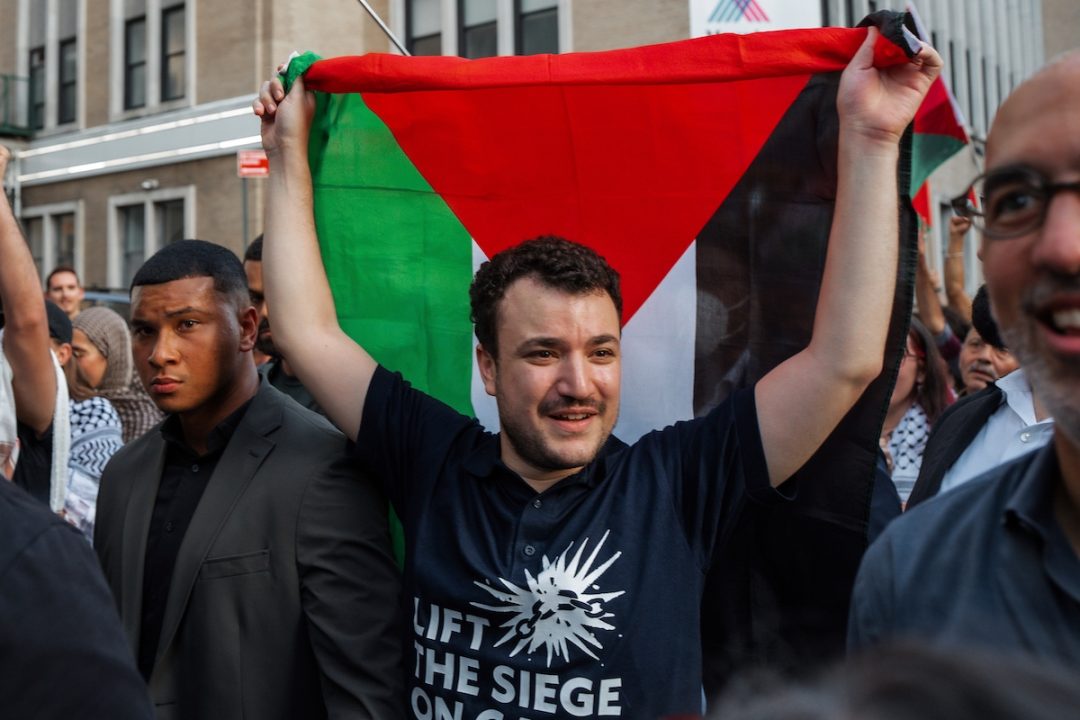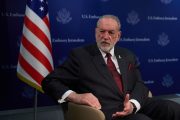
In what could become a landmark civil liberties case, Mahmoud Khalil, a Palestinian-born U.S. permanent resident and student protest leader, has filed a $20 million legal claim against the Trump administration. He accuses U.S. officials of using state power to punish him for lawful political speech, describing the government’s actions as a form of state terror.
Khalil maintains that the administration’s actions against him amounted to false arrest, wrongful imprisonment, political prosecution, abuse of process, and emotional harm — both intentional and negligent.
His goal, he told The Associated Press, is to push back against the silencing of dissent:
They [the Department of Homeland Security (DHS), Immigration and Customs Enforcement (ICE), and the State Department] are abusing their power because they think they are untouchable Unless they feel there is some sort of accountability, it will continue to go unchecked.
The claim describes a government willing to bypass courts, ignore due process, and disappear political opponents under the guise of protecting foreign policy interests. It argues that Khalil’s case is not isolated, but part of a broader effort to punish noncitizen critics. It exposes a system in which federal power was turned against a noncitizen critical of “Israel’s genocide in Gaza and the United States’ support for it,” per the filing.
Khalil’s legal team says he is seeking $20 million not just for personal redress, but to help others who have been similarly targeted by the Trump administration and Columbia University. He would accept, in lieu of payment, a formal apology and the end of what his lawyers describe as an unconstitutional policy aimed at retaliating against pro-Palestinian advocacy.
DHS, however, has rejected the claim. Spokesperson Tricia McLaughlin called it “absurd” and accused Khalil of “hateful behavior and rhetoric” that she said endangered Jewish students in the United States.
The Arrest
Khalil’s ordeal began on March 8, when two plainclothes agents followed him and his pregnant wife into their New York apartment building. According to the claim, filed under the Federal Tort Claims Act, they refused to identify themselves or show a warrant. Khalil was shackled and taken without explanation. Per the filing:
ICE agents followed Mr. Khalil into the vestibule of his private student apartment building without consent from Mr. Khalil or his landlord, Columbia University, or a judicial warrant, in plain violation of his Fourth Amendment rights.
That same night, he was flown to an ICE detention center in Jena, Louisiana. He was not allowed to notify his attorney or family. His wife, due to give birth within weeks, had no idea where he was.
Activism as a “Foreign-policy Threat”
The Trump administration justified the arrest using a rarely invoked clause in the Immigration and Nationality Act. Secretary of State Marco Rubio claimed Khalil’s “presence and activities” posed “serious adverse foreign policy consequences” and would “compromise a compelling U.S. foreign policy interest.”
The claim calls this rationale “conclusory” and “politically motivated.” It accuses officials of targeting Khalil not for any legal violation, but for engaging in peaceful protest. It adds:
The unprecedented use of the Rubio Determination against student activists like Mr. Khalil has been found likely unconstitutional under the First Amendment and/or the Due Process Clause by numerous federal courts.
The filing notes that the Immigration and Nationality Act prohibits the Secretary of State from restricting lawful speech unless he certifies to Congress that admission would harm a compelling U.S. interest. There is no record of Secretary Rubio making such a certification.
Detention and Smears
Khalil spent 104 days in ICE custody. At Jena, he was placed in solitary confinement. According to the filing, he lost 15 pounds due to stress, poor food, constant lighting, and lack of sleep. A preexisting hernia worsened. He went without ulcer medication for two days.
“I cannot remember a night when I didn’t go to sleep hungry,” he told the AP.
At the same time, the administration celebrated the detention. The filing describes how the White House and the DHS “falsely labeled” Khalil a “terrorist sympathizer” and “antisemite,” offering no evidence beyond his participation in campus protests.
According to Khalil, the public smears had lasting and severe consequences. A long-sought job offer from a major human-rights nonprofit was rescinded on April 3. Khalil fears ongoing barriers to employment, travel, and even citizenship.
The impact extended to his family. His wife rarely leaves the house, as she has received threats, including ones to take their baby away. Khalil says he now travels with private security and avoids public spaces. He also faces frivolous lawsuits echoing the government’s accusations.
The filing also warns that the government’s rhetoric — painting Khalil as violent, antisemitic, and dangerous — reinforces anti-Arab and anti-Palestinian stereotypes and puts his entire family at risk.
Weaponizing Immigration Laws?
Khalil’s lawyers argue that the government weaponized immigration law to silence dissent. His arrest and transfers were not about national security, they say, but about sending a message to other student protesters.
According to the filing, a radical pro-Israel group, Betar USA, circulated a “deport list” that included Khalil’s name. ICE allegedly received the list and acted on it. Within days, Khalil was arrested and moved repeatedly — from New York to New Jersey, then Texas, and finally Louisiana, 1,500 miles from his family and lawyer.
The filing claims these transfers were meant to hide his location and delay court review.
His legal team describes the government’s treatment of Khalil as a calculated effort to wear him down physically and emotionally. They argue it was not standard immigration enforcement, but a targeted campaign designed to punish and intimidate.
After the arrest, top administration officials, including President Trump and Secretary Rubio, publicly praised the move. They labeled Khalil “pro-Hamas” and called him the “first of many,” linking his detention to the broader crackdown on pro-Palestinian speech.
To Khalil’s legal team, this confirms the core argument of the case: The U.S. government punished constitutionally protected speech with extra-legal force.
Legal Battle
Khalil was released on June 20, after a federal judge in New Jersey ruled that his detention was likely unconstitutional. Judge Michael Farbiarz determined that Khalil posed no flight risk and no threat to the public. The court also found that the government’s use of a Cold War-era “foreign policy” clause to justify the arrest was legally unsound and vague, and likely violated his First and Fifth Amendment rights.
Though free, Khalil remains entangled in multiple legal battles. His claim under the Federal Tort Claims Act triggered a mandatory six-month review period. If the government fails to resolve it, Khalil can move forward with a civil lawsuit in federal court.
Meanwhile, his immigration case is ongoing. The government still accuses him of fraud on his green card application — charges his lawyers say are part of the same pattern of political retaliation. In addition, the federal habeas case in New Jersey remains open, with the court continuing to examine the constitutionality of his arrest and detention.
Related:
Judge: Bid to Deport Mahmoud Khalil Likely Unconstitutional
Trump’s Deportation Policies: Curtailing Free Speech, Shielding Israel?
State Department Rolls Out AI to Track Online Activity, Revoke Student Visas





